Thought for the Day – 25 April – The Spiritual Combat (1589) – Dom Lorenzo Scupoli OSM (c1530-1610)
“None shall be crowned who has not fought well.” 2 Tim 2: 5
LIV: … The Manner in which We Ought
to Receive the Blessed Sacrament (Part One)
“The Motives for approaching this Divine Sacrament are many, from which it follows that there are various requirements to be observed at three different times:
Before Communion
At the moment of reception of Communion
After Communion
- BEFORE COMMUNION: Whatever be our motive, we must, if stained with mortal sin, cleanse ourselves in the Sacrament of Penance.
And with all sincerity of heart, we must offer ourselves to Jesus Christ, consecrating our souls and all their faculties to His service.
For, it is in this Sacrament that He bestows to mankind, His Body, Blood, Soul and Divinity, together with the immense and inexhaustible treasure of His Infinite merits.
And as all of our gifts to Him are insignificant, when compared to His gifts to us, we should desire nothing less, than the totality of merits gained by the created beings of the universe, to offer as a gift deserving His regard.
If our desire is victory over spiritual adversaries, we should meditate for some time previous to the reception of Communion on the incomprehensibly ardent desire, of our Saviour to be one with us in suppressing our inordinate appetites.
In order, however, to formulate some idea of this Divine wish in our regard, we might consider two things.
The first is the ineffable joy with which Wisdom Incarnate dwells among us, for He calls it His delight [Prov VIII:31].
The second is the implacable hatred He bears toward mortal sin, inasmuch as it is both an insuperable obstacle to that much-desired intimate union with Him and in utter opposition to His Divine perfections.
For as God is sovereignly good, a Light undimmed and Beauty inviolate, He must inevitably hate sin which is all malice, all darkness and all corruption.
So burning indeed is this hatred of God for sin that the entire dispensation of the Old and New Testaments, has been ordained for its destruction.
Several of God’s Saints have said that Divinity would have suffered a thousand deaths on a thousand Golgothas, if the smallest faults could be annihilated within us.
These considerations, rudimentary as they are, may enable you to see ,how much our Saviour desires to dwell within our hearts to expiate therefrom, our common enemies; thus we should welcome Him with all the fervour of which we are capable.
The joyful expectancy of His arrival will raise our courage and inspire us to war anew on our predominant passion, by performing many
acts of the contrary virtue.
Particularly should this be so on the evening before and on the morning of our reception of Holy Communion.”





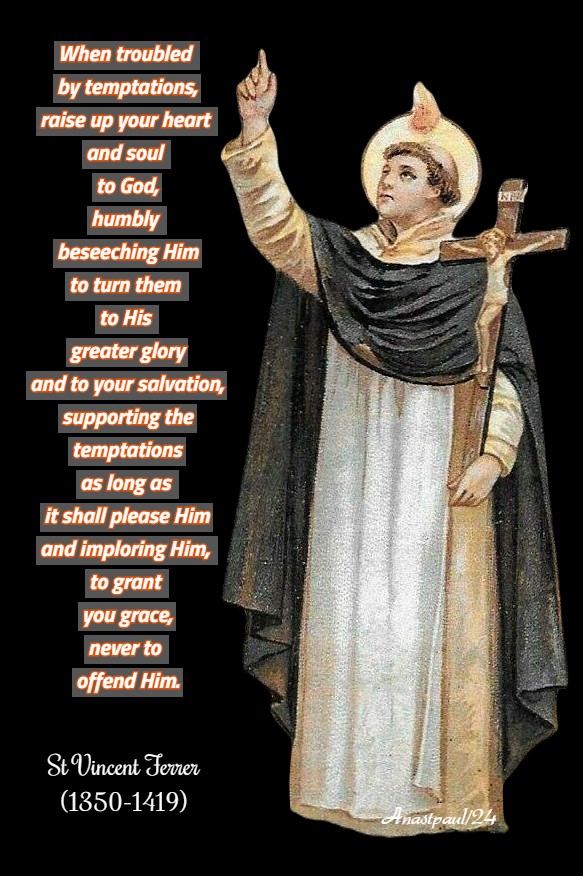

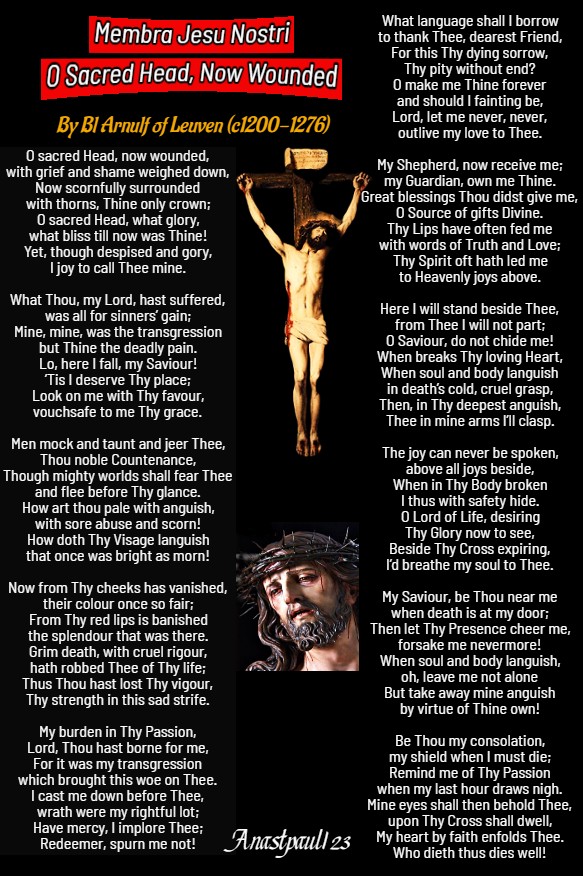
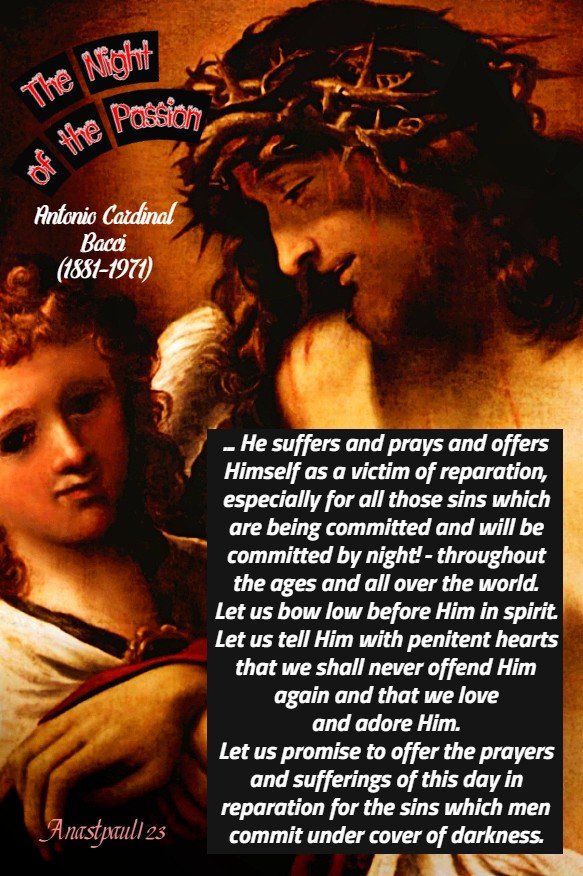






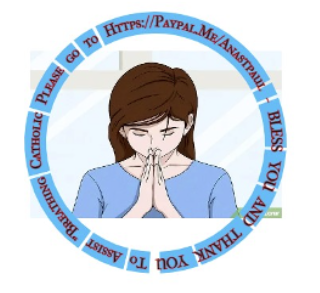





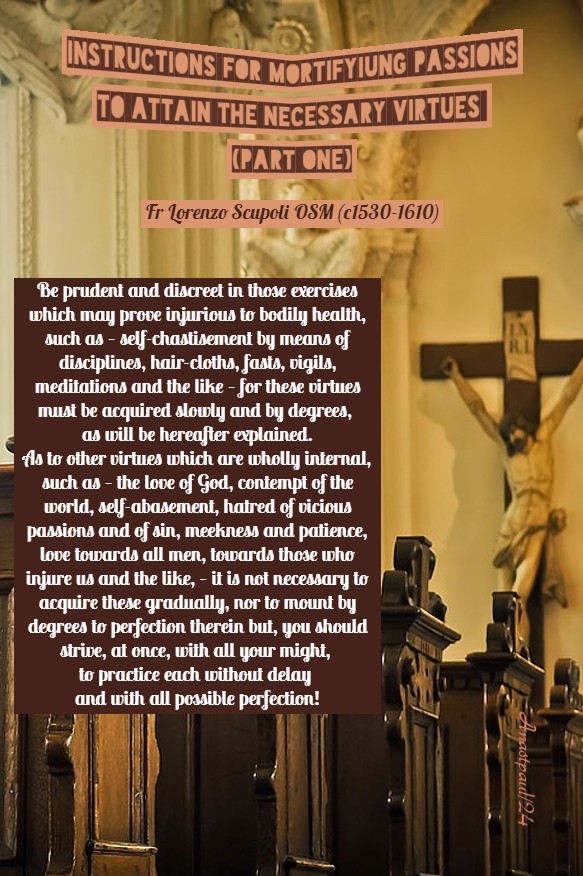




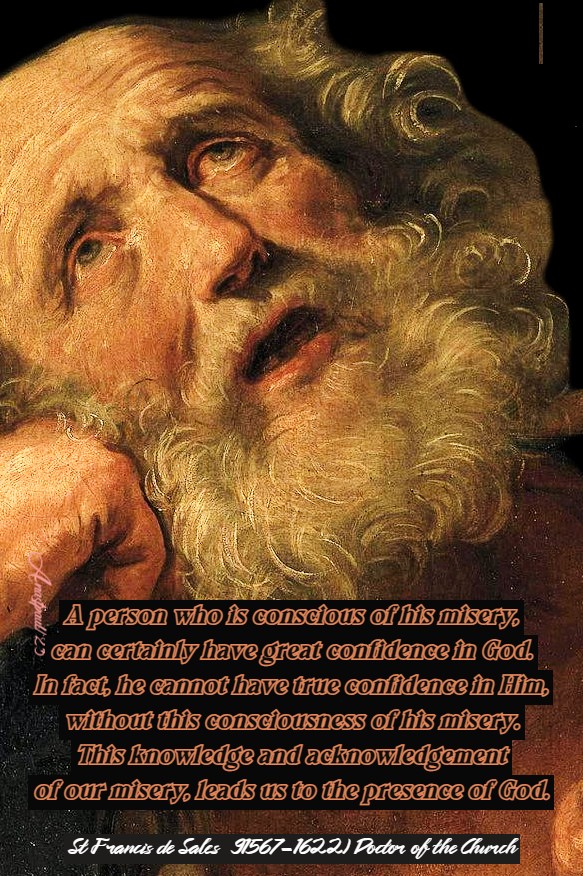
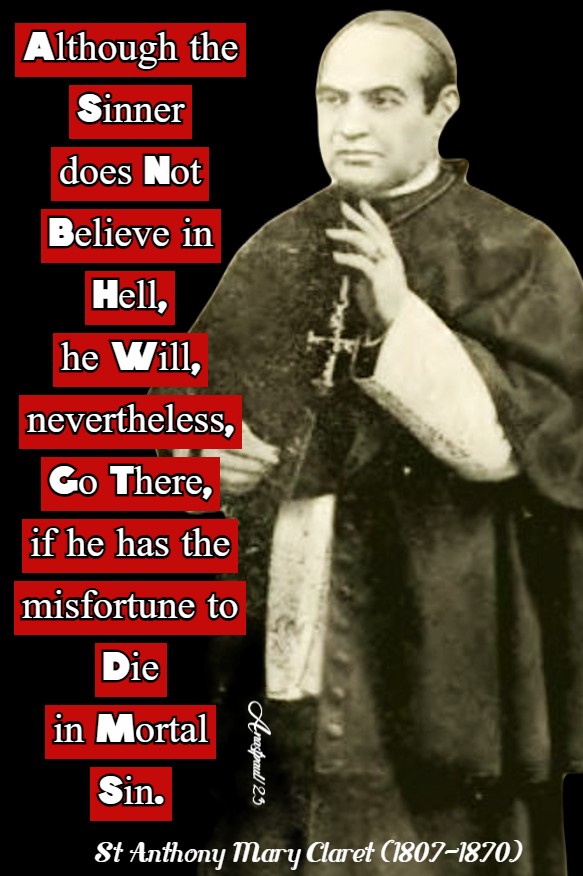
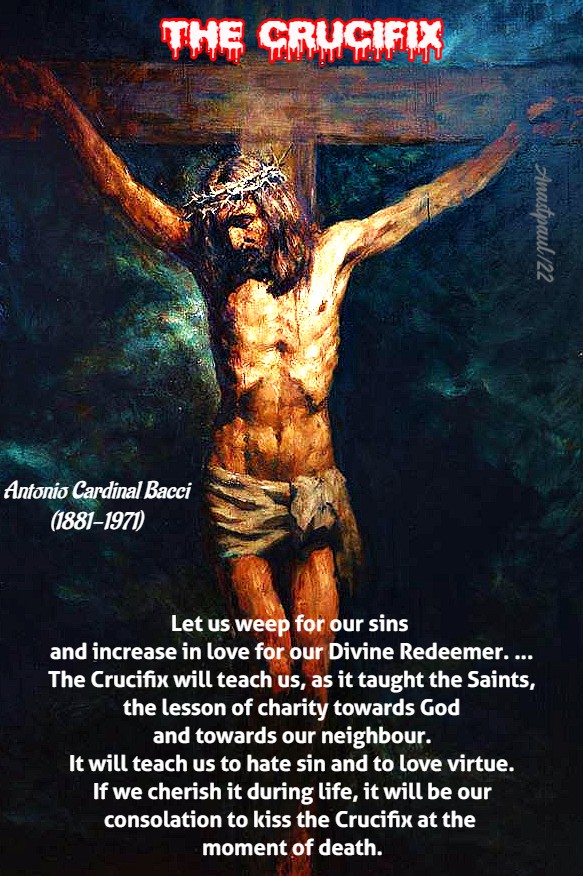









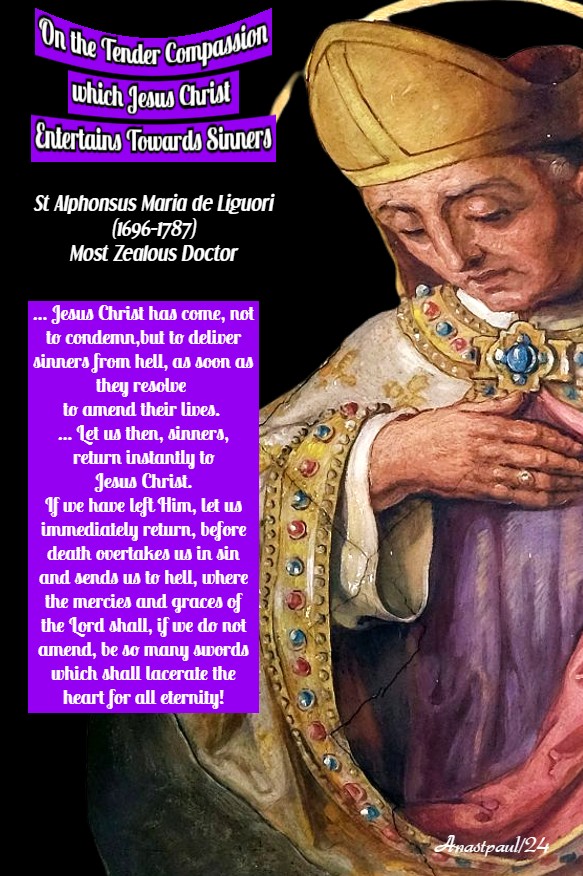





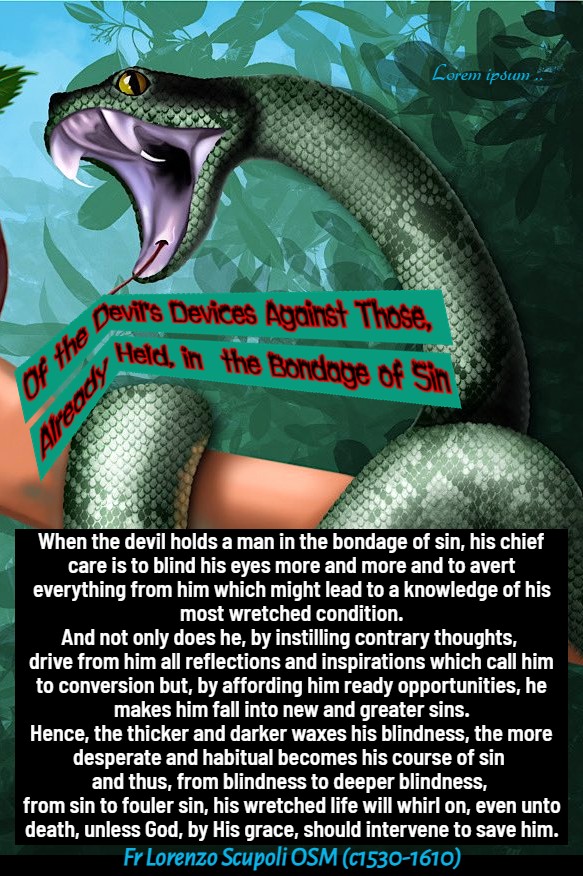

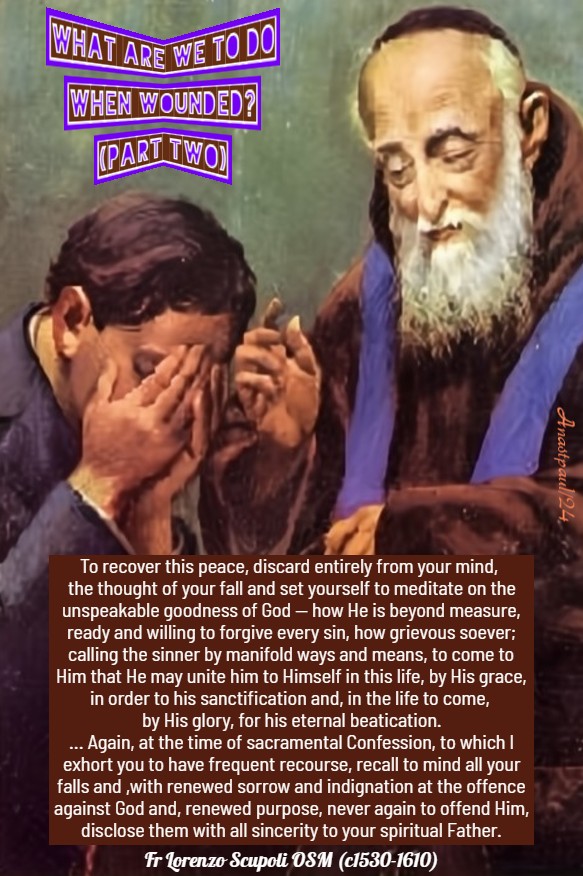
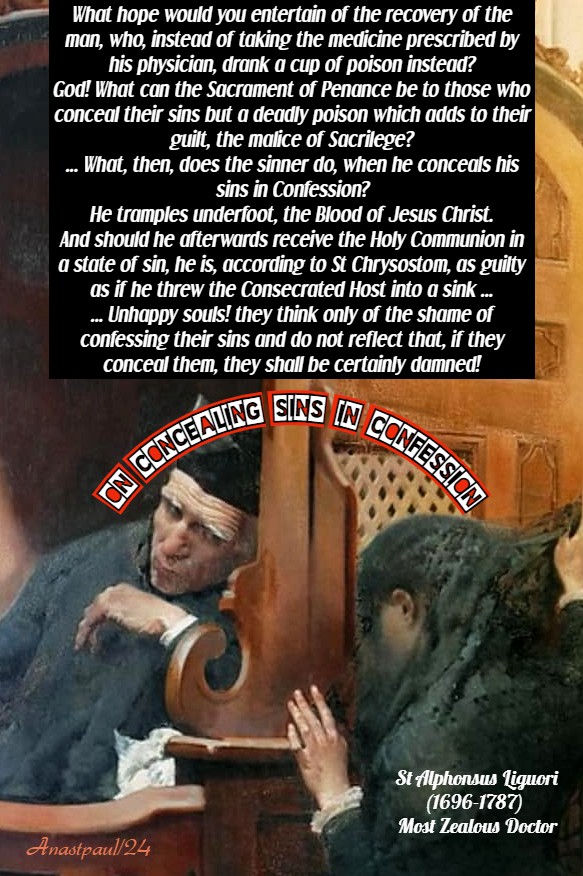








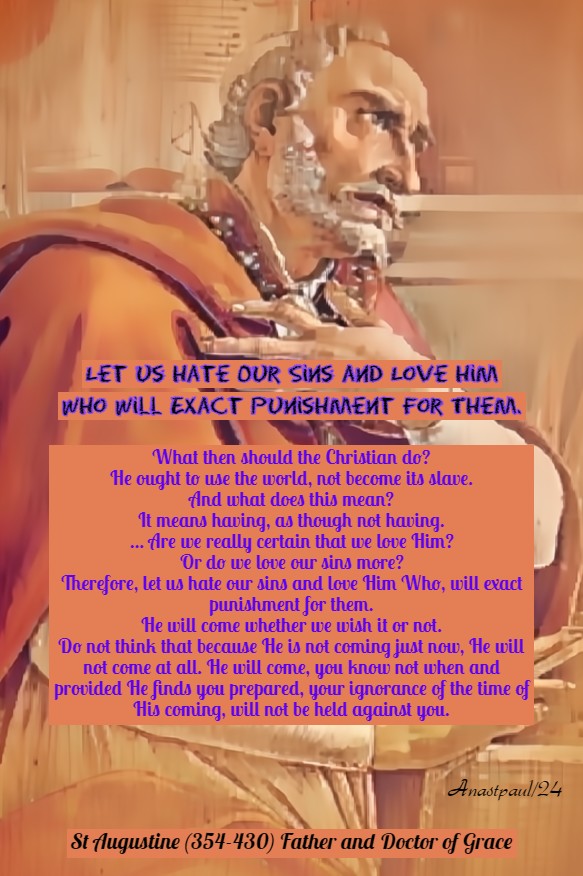


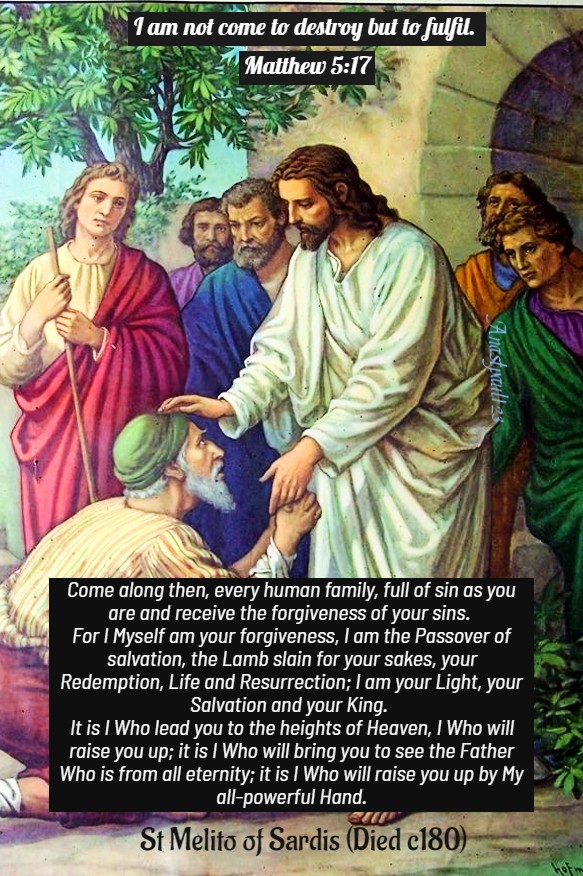


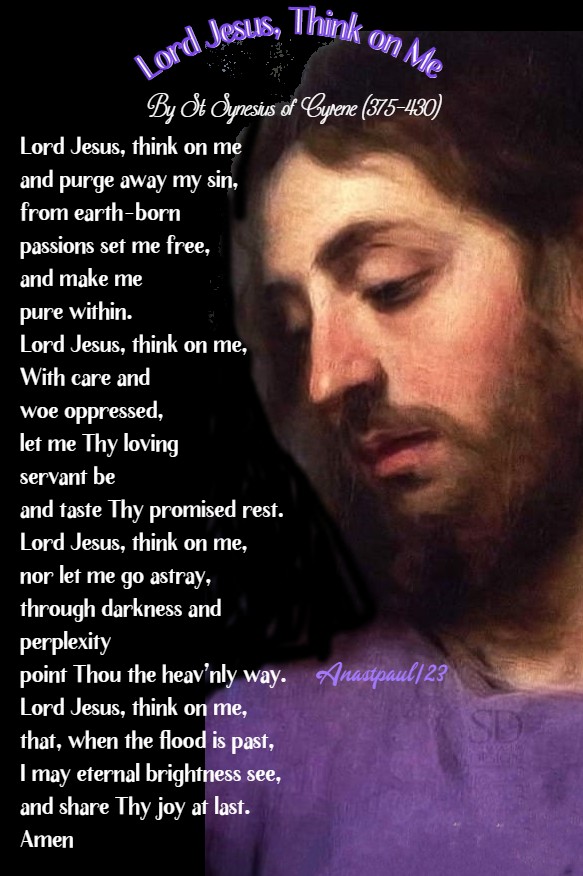

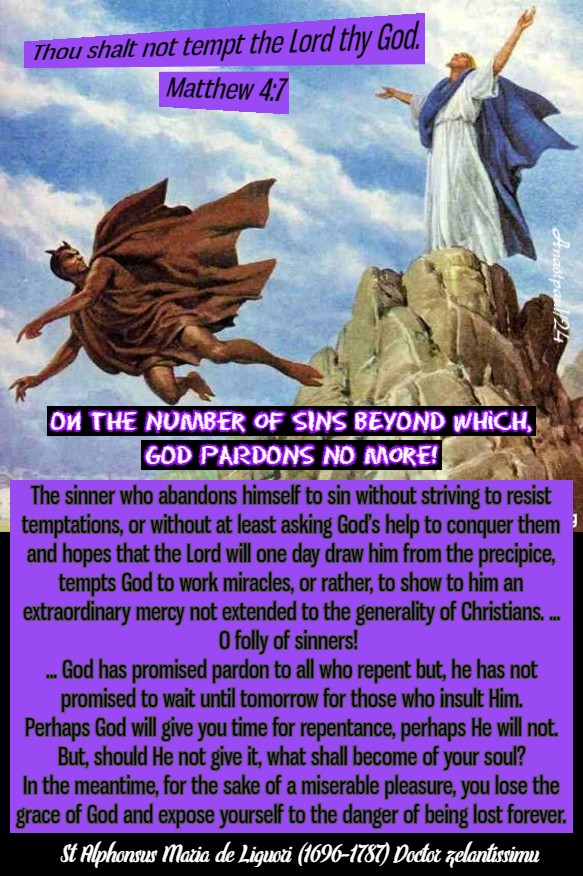


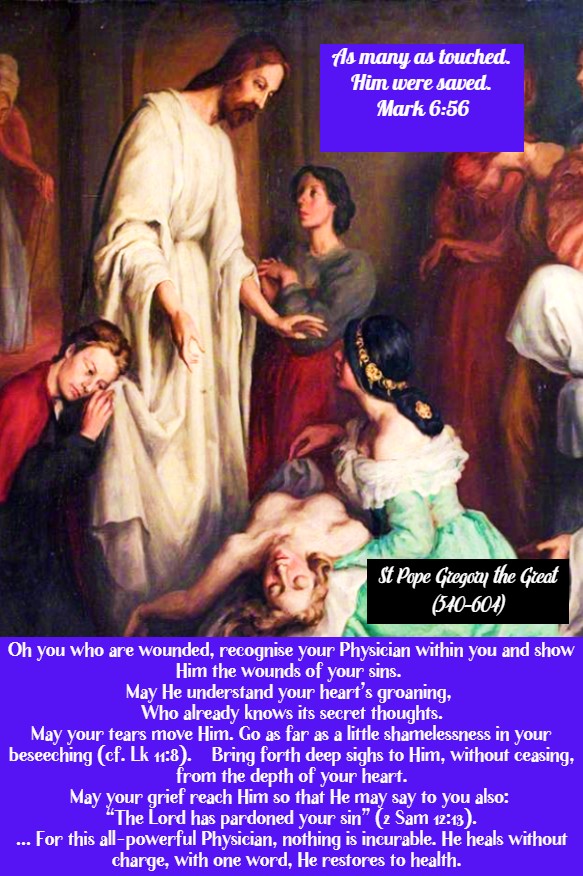



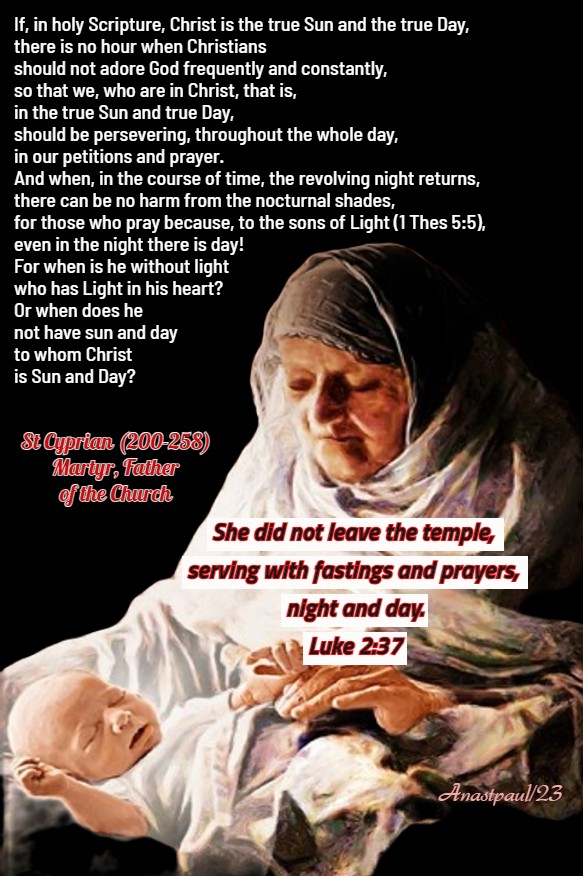





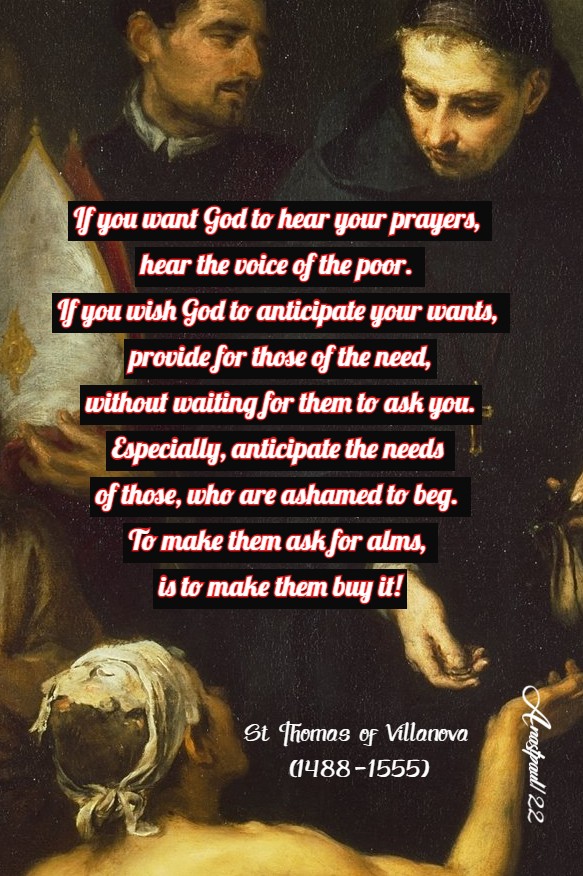

You must be logged in to post a comment.